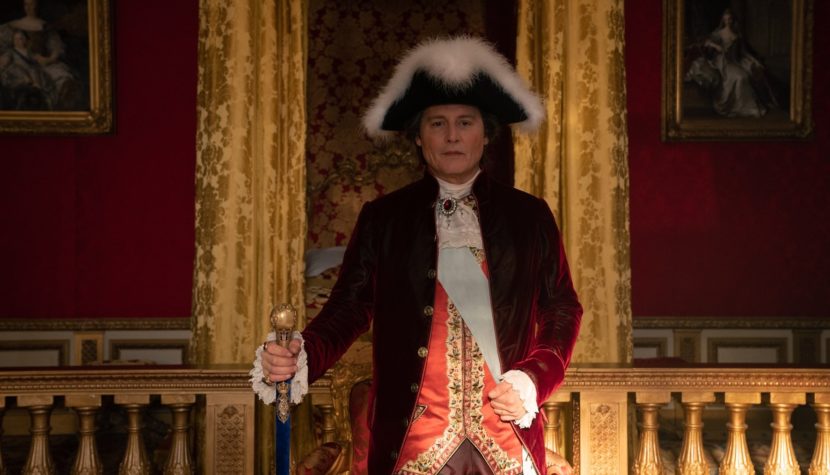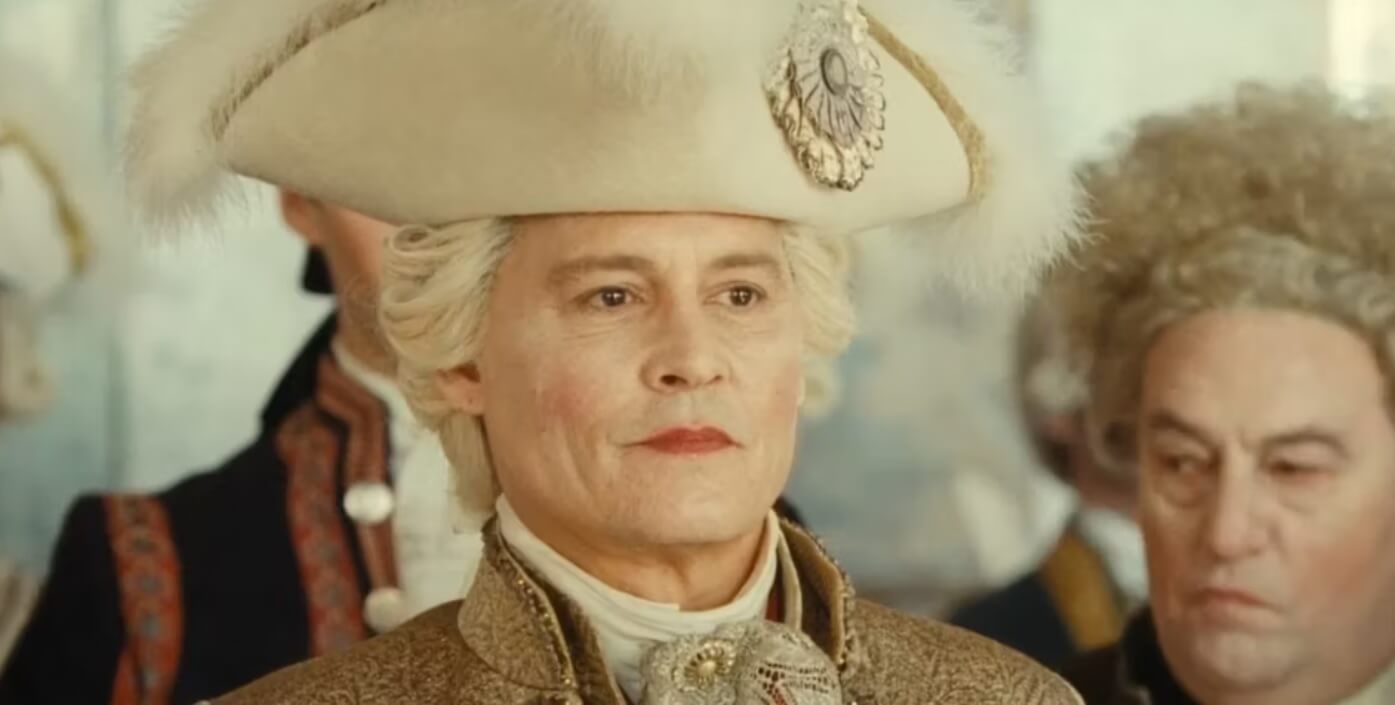JEANNE DU BARRY. Worthy of a royal bed? [REVIEW]

CANNES 2023
A girl from the province in her youth, she hangs around convents, from one house to another, when she jumps somewhere a little higher in the hierarchy, it is the shortest way, i.e. through the bed. Several years later, circumstances for Jeanne du Barry (Maïwenn) will be so favorable and so improbable that Louis XV (Johnny Depp) will give her a necklace. Probably worth more than the entire village Jeanne comes from. From the cattle pens and the coolness of the church cells, we will move to the gilded corridors of Versailles. Above Jeanne’s head, of course, the sun will continue to shine, but diamond chandeliers will hang below.
Jeanne du Barry is like a true story. Bringing us closer to historical figures, but at the same time dealing with matters so intimate and personal, happening behind the bedroom door, that it might as well be complete fiction. Maïwenn’ film may therefore be a variation on Cinderella or another reflection of Madame Bovary. Passionate reading of erotic books effectively rearranges the blocks in the head. Let The Mistress of the King be also a similar to Barry Lyndon (rather in the creative method than quality) mocking depiction of court customs and etiquette. The director, perhaps too obsessed with Kubrick, uses an off-screen narrator, but instead of offering a new perspective and a handful of new information, she falls into tautology, unnecessarily repeating what we see very well on the screen. The leading characters are also not fully fulfilled and used. So a little crystalline relationship is created. It is neither ominously toxic nor passionately romantic. Jeanne is withdrawn and cautious, and Louis XV, as befits a king, statuesque and taciturn. This creates a certain barrier between the viewer and the characters, but paradoxically, it can also be an asset. We get a story about either a profound love or a profound lack of it.
Jeanne du Barry can be debatable in several aspects, but a few definitely are a win. Maïwenn talks about the French elite without any didacticism, naturally weaving threads into the story about racism (one of the “gifts” from the king for Jeanne is a black boy brought from a distant country), sexism (unworthy cases of submissiveness and the dominant power of the male gaze) or the primary class order. Maïwenn accurately scores environmental pathologies. The division into those who have influence, power and means and those without influence, power and means is the foundation for all other social tensions. In relation to them, race, gender and origin are a secondary problem.

Related:
The French director managed to convey the theatricality of court life and the bizarreness of its rituals in a funny, ironic way. Like a chorus, the scenes return when the heroes (according to the binding rule) cannot turn their backs to the king and in a comical way, with small steps and half-bow, retreat behind the door. The sequence of Louis XV’s morning toilet may be an example of the director’s sense of rhythm, humor and irony, as well as proof of staging ingenuity. It works both as an actual event and meta-level comment. Theater – an artificial pose and an expressive gesture – is also the scene in the church, when the king’s daughters brusquely express their aversion to the king’s beloved.
Louis XV and Jeanne du Barry remain in the center, but often the figures of the second and third plan have more to say. The royal majordomo, the heir to the throne, jealous daughters, Jeanne’s mother express their interests, needs and desires much more clearly. In turn, it is particularly important for the film’s dramaturgy that they go through changes and stronger mood swings. Jeanne du Barry is ultimately more than a partial success. It’s hard to lose sight of the great star of American and French cinema, but in this case their position is hard-pressed by the less recognizable surroundings.





